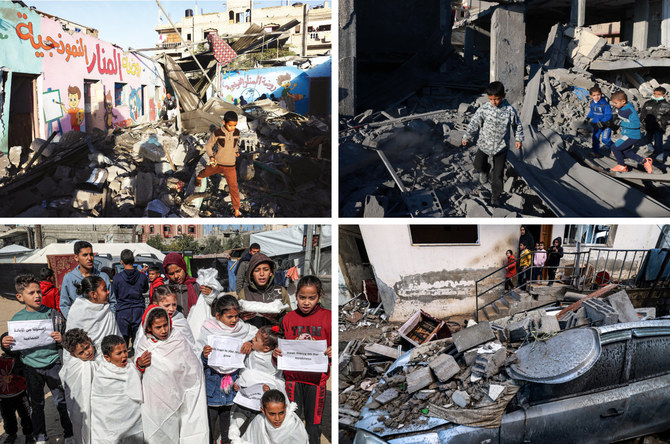
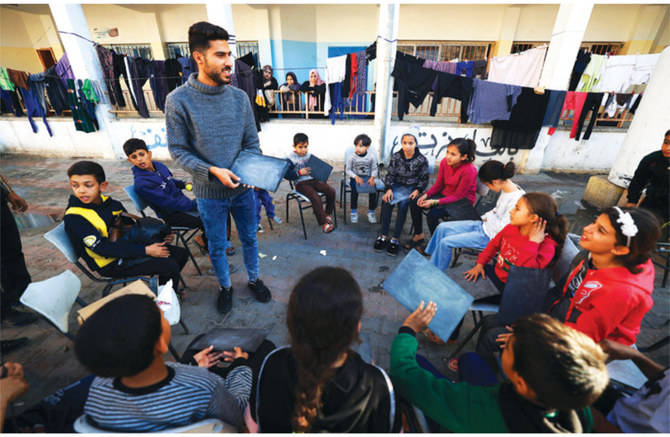
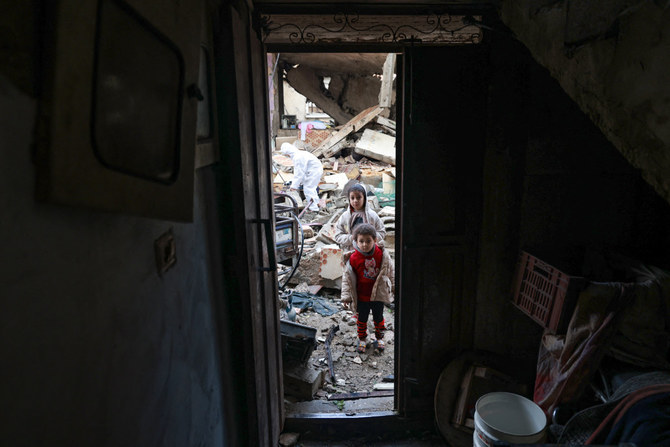



LONDON: Children and young people who survive Israel’s military campaign in Gaza stand little chance of receiving a proper education as the destruction wrought on the Palestinian enclave reduces its schools, colleges and universities to rubble.
Al-Israa was the last of Gaza’s four universities that was still standing after more than three months of bombardment. However, in mid-January, the Israeli army, which had been encamped in its grounds, blew it up.
Footage shared on social media by Nicola Perugini, an associate professor at the University of Edinburgh, showed the moment the building collapsed, having reportedly been rigged with explosives. In response, Perugini called for “a full academic boycott” of Israel.
He is not alone. The British Middle East Center for Studies and Research has also decried the “wholesale destruction” of Gaza’s education system and has urged UK universities to offer more support to educators and institutions in the Palestinian territory.
A BRISMES email sent to UK vice-chancellors said: “Israel has systematically destroyed all Gaza’s universities. Footage shared by the BBC shows Al-Israa being completely destroyed. This act of wanton destruction follows repeated targeting since the start of the war.”
The email went on to ask UK institutions to “commit to set up placements, fellowships, and scholarships” for Palestinian students, enhance placements for Palestinian academics, and offer inter-institutional cooperation.
Noting with “regret” such offerings were not currently in place, BRISMES lambasted what it claimed was a “clear double standard when set against responses to Russia’s attack on Ukraine,” calling for the same level of support for Gazans.
“Within four months of Russia’s invasion, 71 partnerships were in place with Ukrainian universities and UK universities had come forward in their droves to support their Ukrainian counterparts, backed by UK government initiatives and funding,” the email added.
Certainly, the loss of Al-Israa highlights the multi-generational repercussions this war will have for those who survive it. Many now share BRISMES’ view that such losses are in fact a key objective of the Israeli government.
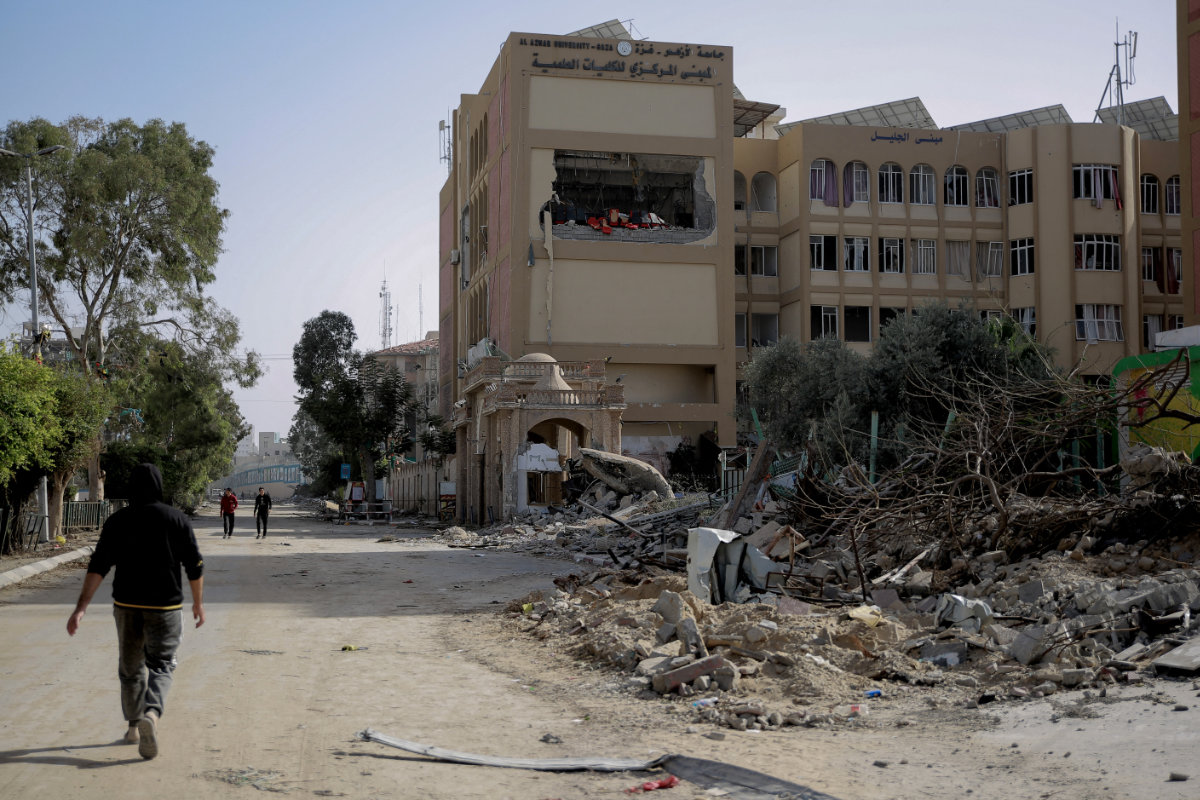
Birzeit University, a West Bank-based Palestinian institute, condemned the destruction of Al-Israa as yet another “part of the Israeli occupation’s onslaught against the Palestinians … (the goal of which is) to make Gaza uninhabitable; a continuation of the genocide.”
Samia Al-Botmeh, assistant professor of economics at Birzeit, told Times Higher Education magazine that the deliberate destruction of large public buildings, including universities, required significant planning, stressing it could only have been done as part of an intentional plan to make Gaza “uninhabitable.”
She said: “The destruction of the education sector is part of this overarching strategy of the destruction of every aspect of service in Gaza that makes life there possible.”
Neve Gordon, a professor of human rights law at Queen Mary University, even described it as “educide.”
Israel has sought to defend its bombing of education institutes, claiming these buildings were being used by Hamas as training camps. Gordon told Times Higher Education the damage wrought would take “10-20 years to recover from.”
Nor is it just the infrastructure that has come under assault. Euro-Med Human Rights Monitor has recorded the killing of 94 university academics by the Israeli army in the course of the war, 17 of whom held professorships and 58 doctoral degrees.
Geneva-based Euro-Med said: “The Israeli army has targeted academic, scientific, and intellectual figures in the Strip in deliberate and specific air raids on their homes without prior notice.
“Those targeted have been crushed to death beneath the rubble, along with members of their families and other displaced families. Initial data indicates there is no justification or clear reason behind the targeting of these people.”
Others have been less certain of claims about the deliberate targeting of education, among them Yossi Mekelberg, associate fellow of the Middle East and North Africa program at Chatham House, and a strident critic of Israel’s war on Gaza.
Mekelberg said that while the destruction of Gaza’s schools and universities was “of course” part of the overall strategy in Gaza, he was less convinced that preventing education in the Strip was a priority for the Israeli military at this moment.
Stressing that it was by no means intended to justify the behavior, he told Arab News the Israeli war plan was to treat “the entire Strip as collateral damage, and sadly education suffers too.”
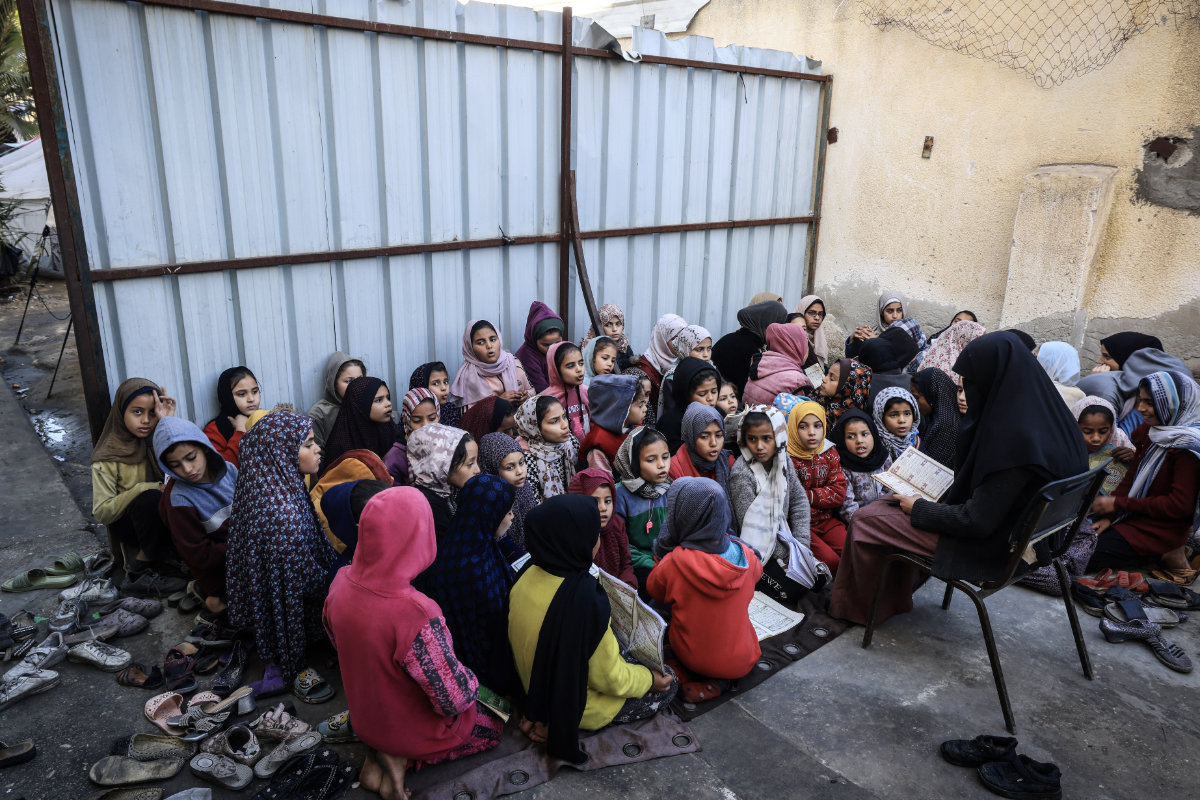
Similarly, Julia Roknifard, an assistant professor at the University of Nottingham’s School of Politics, History and International Relations, said she had yet to see any “explicit or implicit” testimonies that this was in fact the plan.
“At the very least, it falls within the general approach of the right,” she told Arab News. “As in, not specifically weaponizing education but destroying all the infrastructure. It’s hard to single out education in these circumstances when all the rest is subject to destruction too.”
As Gaza’s university system lies in ruins, its schools are faring little better. Figures from the UN’s Office for the Coordination of Humanitarian Affairs report that as of Feb. 4, some 78 percent of schools — representing 386 institutions — had sustained damage, with 138 having sustained major damage.
Phillippe Lazzarini, commissioner general of the embattled UN Relief and Works Agency, said that widespread damage would result in a “lost generation” of Gazan youth.
Speaking to the BBC after footage emerged of Israeli army troops celebrating the destruction of a UN-run school in northern Gaza, Lazzarini said: “There are today more than half a million children in the primary and secondary school system.“How will they go back if you cannot bring people back to their homes, which have been completely destroyed? And I’m afraid that we’re running the risk here of losing a generation of children.”
A senior Israeli official told the BBC it was necessary to destroy the school because Hamas militants “cynically invade and use schools to launch attacks against Israeli troops.”
Critics have accused the Israeli government of Benjamin Netanyahu of deliberately reducing Gazan schools to debris as part of a process of “collective punishment” for the Hamas-led Oct. 7 attacks.
In a statement, UNESCO sought to remind “all actors” of their obligations to comply with Resolution 2601 of 2021, which “strongly condemned” attacks and threats against schools, students and teachers.
Noting the UN Security Council’s adoption of the resolution, it added that “UNESCO urges all parties to armed conflict to immediately cease such attacks and threats of attacks and to refrain from actions that impede access to education.
“This resolution also ‘condemns the military use of schools in contravention of international law and recognizes that use by armed forces and armed groups may render schools legitimate targets of attack, thus endangering children’s and teachers’ safety as well as their education.’”
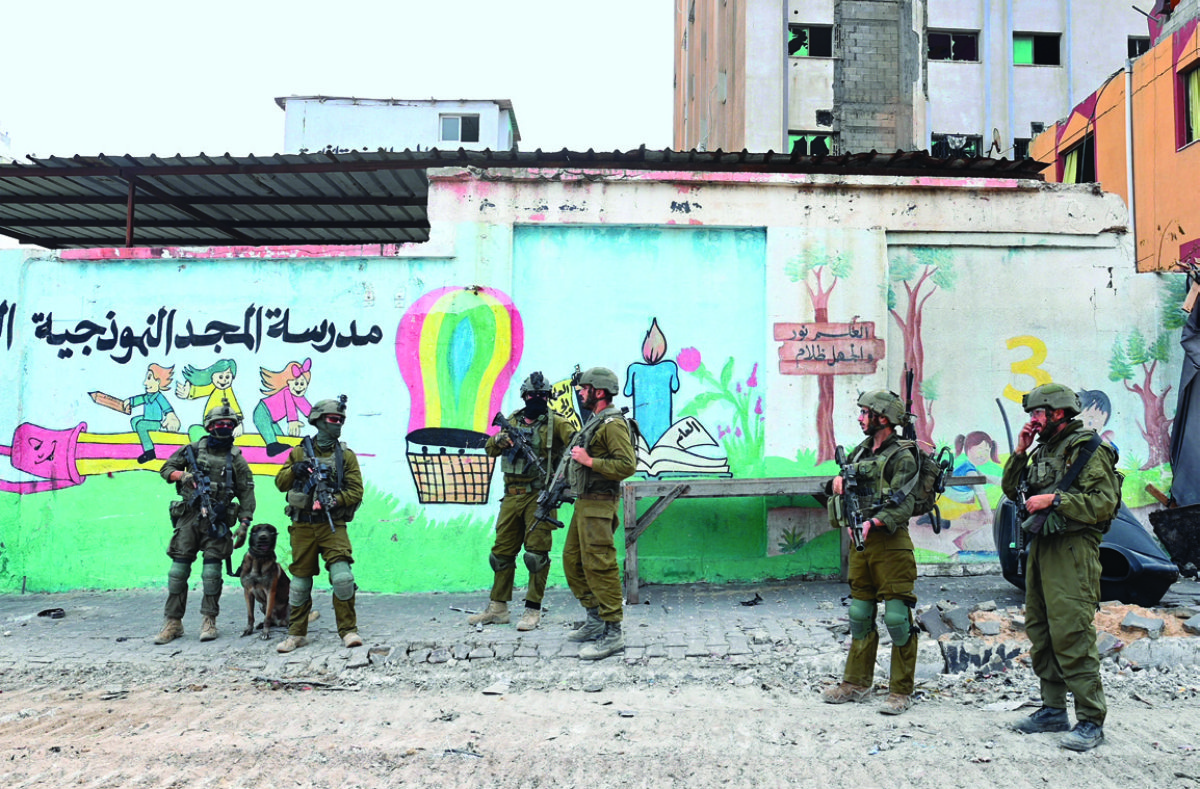
Al-Botmeh of Birzeit University told Times Higher Education that learning had been a “mechanism of resistance” for the Palestinian people — a fact she said Israel’s government well understood.
That is why Israel is “trying to undermine our capacity to survive, resist, our capacity to continue as a people,” she said, adding that while such efforts would undermine the process of rebuilding, “it will not stop us.
“People around the world are not broken by colonizers.”